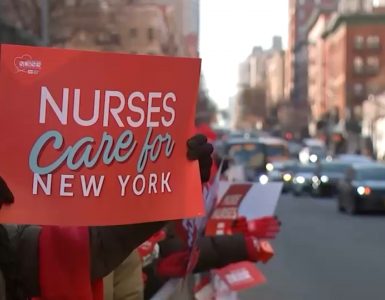Bechukosai 5779
“If you will follow My decrees and observe My commandments and perform them.” (Vayikra 26:3)
In this week’s Parsha, the Torah promises great reward to the Jewish people when they fulfill Hashem’s commandments. Included is Divine protection from any misfortune, sickness or hardship. Famously, in his commentary on these Pesukim[1], the Ramban explores the Jewish perspective on sickness and injury, the role of a doctor in treating the sick, and whether those who trust in Hashem need seek medical help at all.
This essay will examine the seminal comments of the Ramban and outline the positions of the various Rishonim and Acharonim as they interpret his words:
“And the rule is that when Yisrael are perfect and numerous, their affairs are not directed through nature – not in regard to their physical selves, not in regard to their land, not in regard to the general public and not in regard to any individual. For G-d will bless their bread and their water and will remove disease from amongst them to the point that they will have no need for a doctor at all or any manner of Refua. As it says in the Posuk (Shemos 15:26) “For I am Hashem, your healer”[2].”
“And so would the righteous people do in the era of prophecy – when they fell ill because of a sin that has occurred, they would not seek out doctors but prophets. Thus was the conduct of Chizkiyahu (Melachim II 20:1-3[3]). The Posuk (Divrei ha’Yamim 16:12) furthermore states “even in his illness, he did not seek out Hashem, but the doctors”[4]. Now if they had been accustomed to using doctors, why would the Posuk refer to the fact that he used a doctor? Surely the sin was only that “he did not seek out Hashem”? Rather, the explanation must be, that the Posuk speaks in a manner of a person who says “So-and-so did not eat Matzah on Pesach, but rather Chameitz”[5]”.
“But somebody who seeks Hashem through the prophet shall not seek out doctors. And what role do doctors play in the home of those who do the will of Hashem? Since [Hashem] promised “and He will bless your bread and your water, and He will remove disease from your midst” and doctors mainly act to instruct a person’s in his choices of food and drink…[6]”
“Chaza”l also said (Brachos 64a) “all twenty-two years that Rabbah bar Yosef ruled, he did not even summon a blood-letter to his house (for the purpose of Refua)”. They also coined the expression “a gate that is not opened for Mitzvos is opened for the doctor”[7] (Bamidbar Rabbah 9:3). This is also the meaning of their saying “it is not the way of people (to search for) Refuos, but it has become the custom” (Brachos 60a). Were it not customary for people to search for Refuos, a person would only fall ill when he was deserving punishment for a sin, and would be cured when G-d so desired. But the people have become accustomed to Refuos, and therefore G-d leaves them to the happenstance of the natural world.”
“This was the intent of Chaza”l when they said “and he shall surely heal – from this verse we learn that a doctor has permission to heal”. They did not say “a sick person has permission to be healed” but rather, if a person becomes sick and comes to be healed (because he is so accustomed and is not from the congregation of Hashem whose lot is for life), then the doctor does not need to forbid himself from healing him. Neither [should he harbor a] concern that the sick person may die in his treatment for he is competent in his field, nor because only G-d is the healer of people – for people have already become accustomed to seeking Refua.”
“Therefore, when two men are fighting and strike each other with stone or fist (Shemos 21:18), the one who causes injury must pay for the medical costs, because the Torah does not base its laws on miracles, as it says (Devarim 15:11) “for the destitute person will not cease to be in your land” – this is G-d’s intent that it shall be so. But when G-d is content with a man’s conduct, he will have no need for doctors.”
In the final two paragraphs, the Ramban grapples with the Posuk ‘and he shall surely heal” which surely implies that a person is expected to seek medical help. This would appear to be at odds with his assertion that a doctor plays no role “in the home of those who fear G-d”. His solution is that the Torah means to instruct a doctor to be prepared to treat those who are not on the spiritual level to rely exclusively on Hashem.
Many of the commentators explain this notion as follows. Only those whose faith is complete can completely abstain from any medical care. Those who do not have enough faith to trust completely in Hashem, are left to nature’s devices and therefore take ill and need seek medical treatment as is the way of the world.
Rashi also appears to agree with the approach of the Ramban. The Mishna in Pesachim (4:9) relates that King Chizkiyah decided to hide the “Sefer ha’Refuos” (which contained all of the secrets of medicinal remedies) and the Chachamim agreed that he acted correctly. Rashi (Brachos 10b) explains that Chizkiyah did so “in order that people would plead for G-d’s mercy” and not rely on the Sefer ha’Refuos.
The Rambam (Pirush ha’Mishnayos, Pesachim ibid.) argues strongly with the approach of Rashi and the Ramban. The Sefer ha’Refuos, he contends, was not a book of ordinary medicines and cures. Rather, it contained a collection of forbidden remedies that attributes certain cures to some type of mystical or magical methods and was authored in order to understand the secrets of nature[8], not to be used as an actual medical handbook. However, over time, people unfortunately began using its remedies in order to heal themselves, therefore Chizkiyah hid it away.
Alternatively, suggests the Rambam, the Sefer ha’Refuos detailed the damaging properties of certain spices and how they could be prepared as a potion that would cause disease or death. It would then describe the antidote that a doctor could use when he would observe the symptoms described therein. However, wicked people began using the information in Sefer ha’Refuos malevolently; preparing the concoctions it described in order to kill people. For that reason Chizkiyah hid it away.
The Rambam then fiercely disputes Rashi’s contention that Chizkiyah hid the Sefer ha’Refuos because people were not placing their faith in Hashem. Doing so, avers the Rambam, would have been ludicrous in the extreme. Would we say that a person, who avails himself of some bread so as to cure his pangs of hunger, has not sufficiently trusted in Hashem? Only a fool would argue that. The same should apply to availing oneself of medicine or a doctor. Rather than exhibiting a lack of trust in Hashem, a person should think, as he takes his medication, or indeed at any time that he begins to eat, that he is thankful to Hashem for providing him with the means to feel better.
According to the Rambam, when a person takes advantage of the benefits of the natural world (as he cannot simply rely on miracles), rather than displaying a lack of faith in Hashem, he has, in fact, the opportunity to internalize Hashem’s extraordinary Hashgacha.
These thoughts are echoed by the Chovos ha’Levavos (Sha’ar ha’Bitachon Chap. 4) who writes at length about the correct attitude a person should have towards his health. A person should live a healthy lifestyle, he writes, avoiding those things that are known to be damaging to one’s health and seek medical attention when he needs it. This we learn from the aforementioned Posuk “and he shall surely heal”.
Unlike the Ramban, who explained the Posuk “and he shall surely heal” as granting permission to a doctor to treat those of weak faith, the Chovos ha’Levavos contends that it enjoins every man, woman and child to guard their health and seek Refuos when they need it.
However, Chovos ha’Levavos, cautions not to trust in the Refuos themselves. Hashem can cure a person in all manner of ways, sometimes by means of his partaking of ordinary therapeutic medications and sometimes through other means[9]. He may even send a cure to a person through something that is in fact damaging to his health![10] Man must remember that while he is expected to pursue the accepted medical treatments of his time, the cause of his ultimate recovery is Hashem alone[11].
The Rashba’s (Shu”t 1:413) approach appears to fall somewhere between those of the Ramban and the Rambam. While he clearly holds that a person should seek Refuos when he is ill[12], that is only due to the rule of “Ein Somchin Al ha’Neis” – one may not rely on miracles[13]. Essentially, a person should rely on Hashem and the protective power of Torah implicitly[14].
The Acharonim discuss whether the Ramban truly intended to say that a person ought refrain from Refua and trust instead in Hashem. The Klausenberger Rebbe zt”l (Divrei Yatziv, Likutim v’Hashmatos 114) argued that the Ramban refers only to the era of prophecy when a person could receive instructions from the prophet as to how to cure himself of his malady. During those times, it would be pointless to turn instead to Refua for how could he circumvent the words of the prophet? At all other times, though, a person should certainly look for a Refua, and should certainly not rely on his righteousness or levels of faith.
The Taz (Y.D. 336:2) takes a different approach. The true, purest form of Refua, he writes, is brought about by Tefila to Hashem. But man did not ultimately merit this manner of Refua. Hashem, by gifting “permission to the doctor to heal”, decided that man must make use of the natural world’s remedies and turn to medical help when he requires it[15],[16]. This was also the intention of the Ramban. When the Ramban wrote that a person should not seek Refuos, he did not mean it in a practical sense[17] but in the theoretical ideal sense that trust in Hashem should be enough.
R’ Zev Nachum Bornsztain zt”l, the father of the the Avnei Nezer (in Shu”t Avney Nezer C.M. 193) understood the Ramban’s words literally, and wrote that even after the era of prophecy a righteous person may rely exclusively on Hashem and not seek Refuos. He speculates to what degree a person must be a “Tzaddik” in order to rely on the Ramban[18] but supposes that anybody can adopt this approach and consider themselves righteous for these purposes[19].
Nevertheless, the Poskim rule unanimously against this Teshuva in the Avney Nezer. (See Shu”t Yechaveh Da’at, 1:71 & Shu”t Yabia Omer 4 C.M. 6). The prevailing Halacha is that if a person takes ill, he should absolutely seek the best medical care and attention while simultaneously putting his trust and gratitude in G-d.
[1] See ibid. Posuk 11
[2] These words imply that in these circumstances, the Jewish people will not become sick at all. It is not that Hashem will heal them when they are sick. The same is implied by the Posuk “and I will remove disease from your midst”.
[3] “In those days Chizkiyahu became deathly ill. Yeshaya ben Amos the prophet came to him and said, “Thus said Hashem: Instruct your household, for you shall die; and you shall not live”. [Chizkiyahu] then turned his face to the wall and prayed to Hashem, saying, “Please, Hashem, remember now that I have walked before you faithfully and wholeheartedly, and I have done what is good in your eyes.” And Chizkiyahu wept an intense weeping”. See also the remainder of the Perek.
[4] This Posuk speaks of Assa, the King of Yehuda who angered Hashem by his conduct during his illness.
[5] In other words, it would have been possible to interpret this Posuk as saying that the sin of King Assa was not that he made use of doctors, but rather that he trusted in them and not in Hashem. However, the Ramban dismisses this interpretation, because the Posuk should not have stressed the fact that he used the doctors but rather stressed the lack of trust in Hashem. Therefore, the Ramban contends, that the Posuk means to say that the use of the doctors at all was worthy of censure.
[6] This section of the Ramban needs further clarification. Does he mean to say that when a person is sick, he should go to the prophet who would tell him what Hashem wanted from him at this time, or, as is implied at the end of the paragraph, does he mean that Hashem would bless the food and drink so that diseases would be removed from them?
[7] This teaches us that observing the Mitzvos protects a person from illness. It does not mean to say that when he is ill he shouldn’t summon a doctor.
[8] One may learn of forbidden practices so as to understand them and rule on them.
[9] As the Posuk says “He will dispatch his word, and He will cure them”.
[10] As took place in Maror where Moshe Rabbenu sweetened the bitter waters by throwing into them the bitter branch of the Hardufni tree. A similar episode took place with Elisha later in history.
[11] According to the Chovos ha’Levavos, King Assa (see footnote 4) stumbled in this area. The Ramban claimed that King Assa’s mistake was that he turned to doctors to heal him, but Chovos ha’Levavos argues that the Posuk implies that he erred in attributing his cure to the doctors and not fully to Hashem.
[12] The Rashba cites the Posuk “and he shall surely heal” and explains that the Torah means to give permission for a doctor to heal somebody and not to think that he is interfering with the decrees of Hashem.
[13] The Rashba, throughout this responsum, discusses this rule at length.
In truth, the Ramban’s approach appears to contradict this rule – how can the Ramban contend that is it permitted for a person to ignore one’s sickness and merely trust that Hashem will miraculously cure him?
Perhaps he held that sickness is not an ordinary part of the natural world but an inherently miraculous message from Heaven that a person need mend his ways. If so, a person’s response to this message should focus on his spiritual maladies and not its external manifestations.
This may also help answer the question of the Rambam who argued that seeking Refuos is no different than eating and drinking. According to the Ramban, hunger and thirst are the natural order of creation. There is nothing wrong with ‘curing’ them by eating and drinking. Feeling ill, by contrast, is not part of the natural order – it is a spiritual message.
[14] The Rashba, like the Chovos ha’Levavos, cautions from trusting in the doctors or medications without attributing their successes entirely to Hashem.
[15] This is why the Shulchan Aruch referred to Refua both as a Mitzva (command) and Reshus (permitted). Hashem gave “permission” for man to make use of the non-ideal methods of Refua because he would not merit the idealistic form. Once that was the case, it became a Mitzva.
[16] The Taz uses this idea to explain the Gemara in Brachos (62) regarding the Nusach of the Tefilah that should be said when going to a blood-letter.
[17] The Taz notes that there are, however, several parts of the Ramban’s words that imply that he did indeed mean to speak in a practical sense.
[18] He also debates whether a person may rely on the Ramban’s opinion and consider himself a “Tzaddik in this regard” in order to avoid ingesting lifesaving non-Kosher medications and instead rely on Hashem to save him.
[19] He discusses whether in general a person is allowed to adopt a level of righteousness that is beyond his actual level.












Add comment